
THE BIOFUELS DECEPTION
THE BIOFUELS DECEPTION
Going Hungry on the Green Carbon Diet
by OKBAZGHI YOHANNES

MONTHLY REVIEW PRESS
New York
Copyright 2018 by Okbazghi Yohannes
All Rights Reserved
Library of Congress Cataloging-in-Publication Data
available from the publisher
ISBN: 978-158367-702-5 (paper)
ISBN: 978-158367-703-2 (cloth
Typeset in Minion Pro
MONTHLY REVIEW PRESS, NEW YORK
monthlyreview.org
5 4 3 2 1
Contents
To Tamara with gratitude and love
Acknowledgments
THIS WORK HAS TAKEN THE EFFORTS of so many people, some of whom deserve particular mention. The support of the University of Louisville Department of Political Science was instrumental in providing the necessary support, particularly during my trip to Africa to study the extent of biofuels on that continent. Special thanks go to the late Laurie Rhodebeck, who passed away in fall 2017, who made an enormous contribution to this work as director of the Graduate Program providing me with highly skilled graduate research assistants. Also, my thanks go to Professors Chuck Ziegler, Roger Payne, and Dewey Clayton for their years of encouragement and support. In addition, Isabelle Christensen was very helpful in editing some of the chapters.
My special thanks go to Dr. Michael Yates of Monthly Review Press for his faith in the project and to Erin Clermont for her clear and helpful editing.
Finally, huge thanks go to my wife, Tamara. Without her diligent and persistent participation, this work could not have been done.
 1
1 
The New Geoeconomics of Biofuels: Lessons Still Unlearned
S ince the 1992 Rio summit on the environment and climate, the subject of biofuels has shadowed the global debate on the triple crises of global energy insecurity, global climate change, and global poverty. This has created a gaping hole that has allowed transnational corporations to step in to shape the contours and direction of the debate. Indeed, the corporate world saw the triple crises as heaven-sent. They reassured the world that the gains from the new life-science revolution would solidify the geopolitical and energy security of nations, substantially reducing greenhouse gas (ghg) emissions and stabilizing the global climate, creating millions of green jobs, and lifting up billions of people from grinding poverty through the promotion of rural development and income generation.
According to the transnationals, the post-petroleum bio-economy will usher in a new era where all countries will rely on green liquid and solid sources of energy without fear of causing anthropogenic climate change, without fear of vulnerability to supply disruptions or global energy price volatility, and without fear of the political use of energy. The imagery and the propaganda that Of course, this conjectural projection tells us nothing about the effects of such enormous production of biofuels on biodiversity, environment, and the atmosphere or on human food and animal feed production.
In any event, for those who must focus on capital accumulation, their obsessive preoccupation has been on how to adroitly create the subjective conditions that will combine with the urgency of the very real environmental crisis in such a way that biofuels will be seen as the way to solve the crisis but will also allow capital to solve its own crisis of overaccumulation. One objective factor facing industry is the presumed oil peak. Ever since the oil shocks of the 1970s, the bourgeois world has been haunted by the prospect of fossil resource depletion, something that found empirical expression in what is known as the Hubbert peak. In 1956, Royal Dutch Shell geologist King Hubbert developed a useful mathematical model that allowed him to assess the length of time it would take for the United States to use its petroleum resources before the resources begin to decline. In its simplest form, the hypothesis Hubbert formulated states that the duration of the supply of petroleum depends on the rates of discoveries, production, consumption, and the delivery infrastructure put in place. During the pre-peak period, production increases in a linear fashion because
The politicization of petroleum by Arab and other radical regimes in the 1970s, coupled with supply disruptions owing to natural conditions or social instability, as in Nigeria in the early 2000s, has strengthened the Hubbert peak hypothesis. Indeed, it has acquired such status that it haunts petroleum-importing OECD countries. These countries have now come to grudgingly view the Hubbert peak as the essential expression of the limits of nature to supply ever greater quantities of the hydrocarbons demanded to match limitless capitalist growth. Even the IEA acknowledges this reality. In its 2013 World Energy Outlook, the agency notes that its own investigation of more than 1,600 fields confirmed that, once production has peaked, the annual decline in output from a conventional oil field is around 6 percent on average. As a result, the output of conventional crude oil from existing fields worldwide is projected to fall by over 40 million barrels a day by 2035, requiring exploitation of shale oil and tar sands; more than half of the unconventional production is projected to offset the decline in conventional oil supply. It is the adroit orchestration of this ready-made objective condition that the Transnational Corporations (TNCs) have employed to win over industrial countries to the notion of biofuels as the answer to the actual and potential oil crisis. Undeveloped countries have also been brought on board with the promise of huge gains from specializing in bioenergy crop and biofuel production, in terms of both reducing their oil import bills and generating precious hard currency by exporting feedstocks to the Global North. The corporate promise that the specter of the Hubbert peak can be exorcised through a combination of synthetic substitutes for hydrocarbons and migration to bioenergy production has crystallized. The conventional discourse now is not so much about whether the Hubbert peak hypothesis is empirically supportable as it is about how to quicken the migration to renewable sources of energy, or how to move from fossil-based black energy to carbohydrate-based green energy. The financial crisis of the new century has provided additional momentum to the dogged determination of capital accumulators to quicken the migration to the biotic realm for biofuels, biochemicals, and biomaterials.
Anthropogenic-driven climate change is the second Trojan horse that TNCs have cleverly used to market biofuels as the long-awaited answer to the crisis of overaccumulation. Even a multitude of bourgeois non-governmental organizations, which long had fought for reduction in ghg emissions, have been won over to biofuels as the palpable solution, even though some of them have now backed off from their earlier enthusiasm. Former U.S. vice president Al Gore, through his well-received documentary An Inconvenient Truth, has been the leading spokesperson for various environmental groups that saw biofuels as climate- and environment-friendly.
The elimination of global poverty is the third Trojan horse. The TNCs have linked biofuel production to global poverty eradication. A sinister machination is at work here. Since most of the required feedstocks, either through the commercial enclosure of forests, savannahs, and grasslands or through direct conversion of existing agricultural land to feedstock production, are found in the Global South, specialization in biofuel production must be conveniently linked to poverty eradication. As the corporate narrative goes, developing nations could avoid importing costly petroleum by simply producing biofuels domestically to run their transport vehicles. Moreover, they could significantly increase precious foreign exchange by exporting feedstocks, and the rural population would immensely benefit since they are the real producers and suppliers of these resources. The employment multiplier effect could be enormous as feedstock growers, rural workers, transporters, and processers could increase in parallel with the expansion of the biofuel sector.
Next page
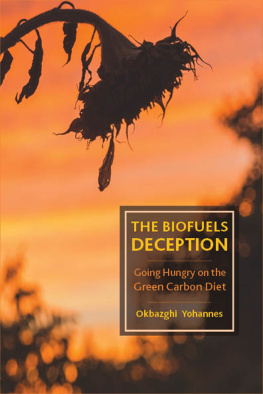
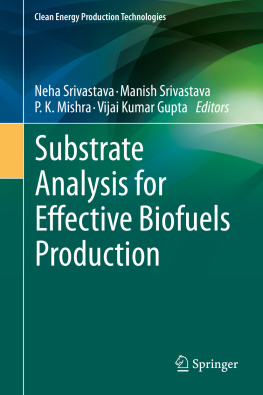
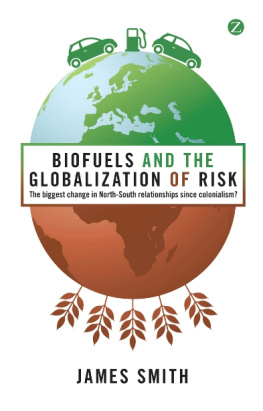



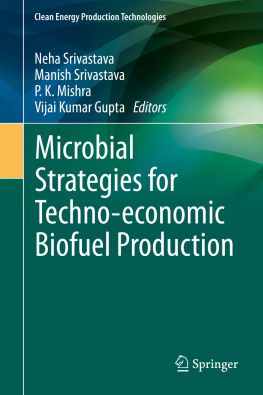


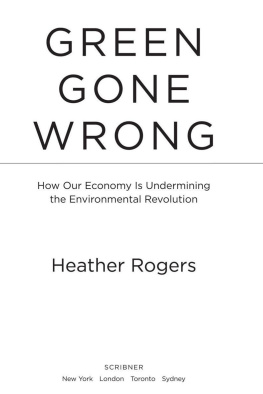


 1
1